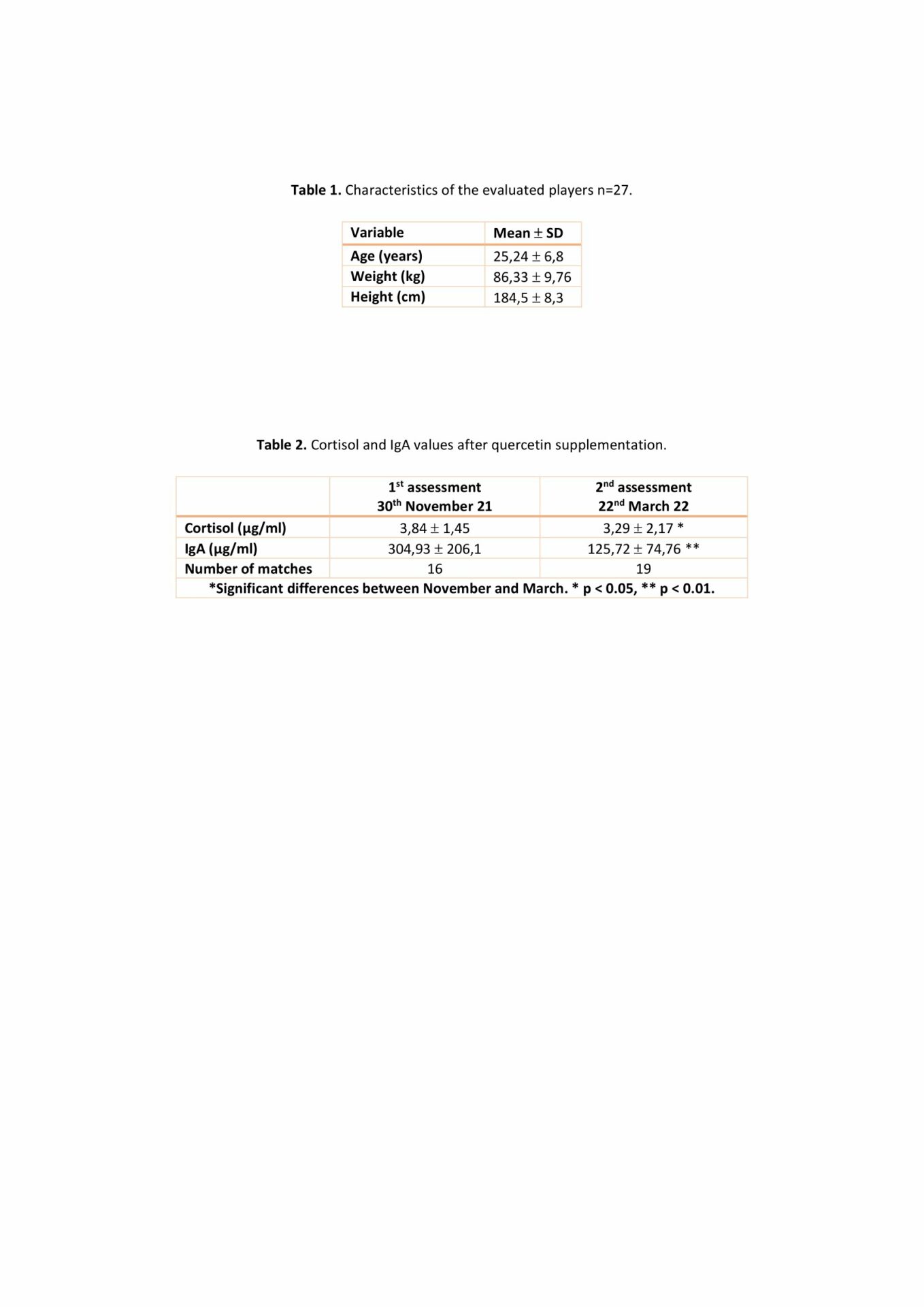Introduction
Quercetin is one of the most widely consumed flavonoids in the human diet and is widely distributed in fruits and vegetables1. It is the most potent remover of Reactive Oxygen Metabolites (ROMs) and enhances the body's antioxidant capacity by modulating glutathione levels2.
This flavonoid has been shown to promote post-exercise recovery3, reduce oxidative stress and muscle damage, and accelerate recovery after intense exercise4.
Methods
Longitudinal study with 27 players from Udinese Calcio of Italy (Table 1), in which two evaluations were carried out, November 2021 and March 2022.
The impact of quercetin supplementation on post-match recovery was studied, measuring cortisol and salivary immunoglobulin (IgA) values at 60-72 hours post-match.
Table 1. Characteristics of the evaluated players n=27.
|
Variable |
Mean ± SD |
|
Age (years) |
25,24 ± 6,8 |
|
Weight (kg) |
86,33 ± 9,76 |
|
Height (cm) |
184,5 ± 8,3 |
The competition started on 22nd August. From August to November the players did not take quercetin and from December to March they took 500 mg quercetin the day after each of the official matches. In the first and second evaluations, IgA and cortisol values were measured 60-72 hours post-match in order to compare the values obtained at both times.
The players performed the cortisol and IgA tests on an empty stomach, always supervised by the nutritionist. Once the sample was obtained, it was analysed immediately. To assess salivary cortisol and IgA we used the SOMA Bioscience system, a non-invasive, fast and easy-to-use system.
This work was approved by the Ethics Committee of the Pablo de Olavide University.
Results
The average values obtained are shown in table 2.
Table 2. Cortisol and IgA values after quercetin supplementation.
|
|
1st assessment 30th November 21 |
2nd assessment 22nd March 22 |
|
Cortisol (µg/ml) |
3,84 ± 1,45 |
3,29 ± 2,17 * |
|
IgA (µg/ml) |
304,93 ± 206,1 |
125,72 ± 74,76 ** |
|
Number of matches |
16 |
19 |
|
*Significant differences between November and March. * p < 0.05, ** p < 0.01. |
||
We found that post-match quercetin administration significantly reduced cortisol values and very significantly reduced IgA values, which could be related to better recovery, as argued in another research.
Conclusions
The administration of 500 mg quercetin the day after the match is a good recovery strategy in football, as it improves the immune response and adaptation to the stress produced by the competitive event, which we believe leads secondarily to injury prevention.

